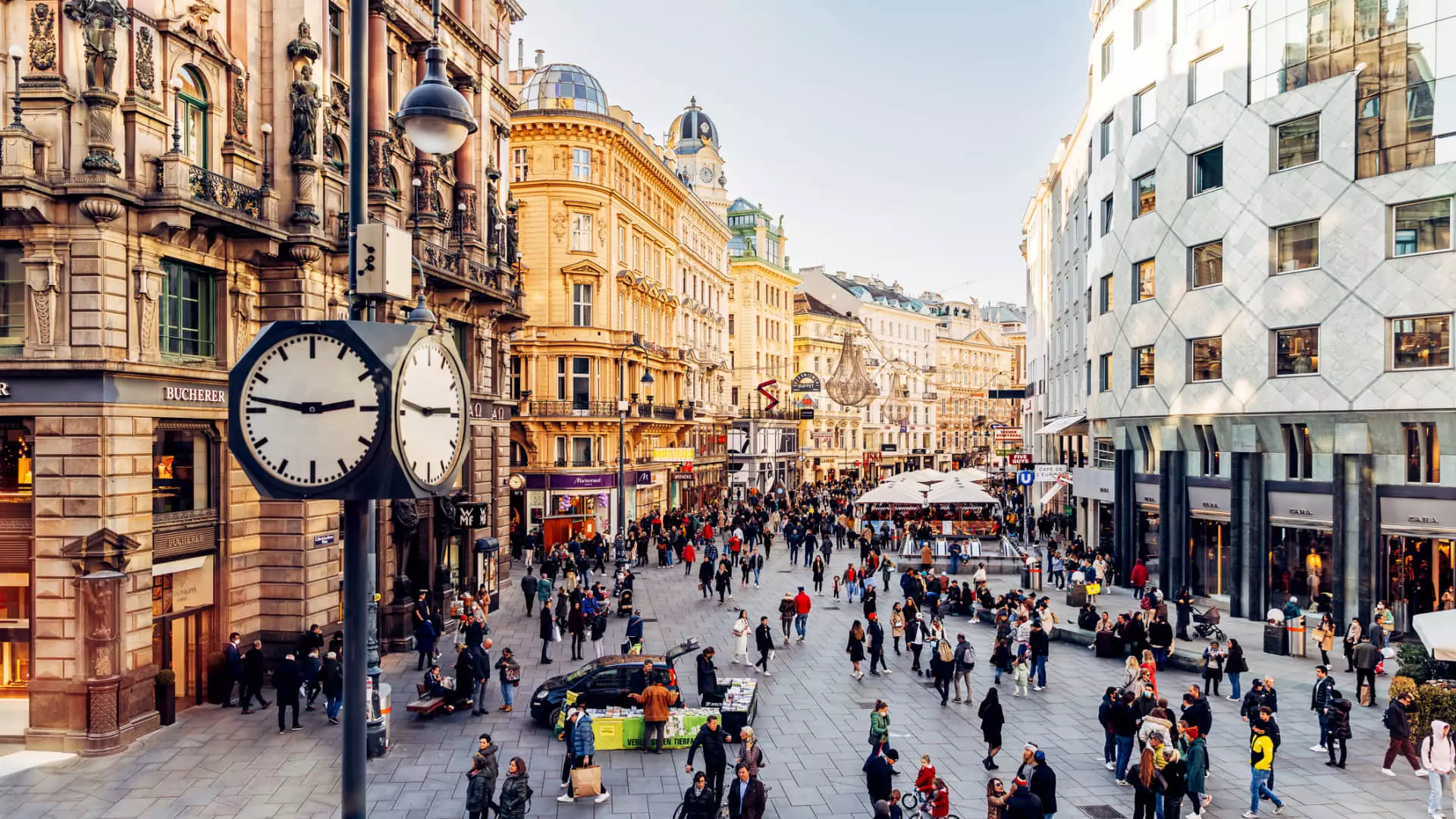Vienna, Austria, has claimed the title of the world’s most livable city for the third consecutive year, as per the Economist Intelligence Unit’s 2024 Global Liveability Index. The city scored high marks in categories such as stability, health care, education, and infrastructure. However, its culture and environment ratings took a slight hit due to a lack of major sporting events. Despite minor setbacks, Vienna’s overall performance propelled it to the top of the list, setting the standard for livability on a global scale.
Alongside Vienna, other Western European cities like Copenhagen, Denmark, and Zurich, Switzerland, also featured prominently in the top ranks of the index. The 2024 Global Liveability Index highlighted the top 10 most livable cities in the world, including Melbourne and Sydney in Australia, Calgary and Vancouver in Canada, as well as Osaka in Japan and Auckland in New Zealand. Interestingly, four Asia-Pacific cities made it to the list, showcasing the growing influence of the region on global livability standards.
Asian cities have been making notable strides in their livability scores, with Hong Kong experiencing a significant rise in rankings. The city’s improved political stability, attributed to new security laws and regulations, marked a turning point in its livability assessment. Moreover, Southeast Asian nations like Singapore recorded impressive gains in healthcare ratings, underlining the region’s commitment to enhancing quality of life for its residents. Despite challenges, Asian cities are progressively enhancing their livability offerings, with many achieving high scores on the index.
In contrast, Indian cities encountered a decline in livability scores, primarily due to poor air quality and infrastructural limitations. While the government has prioritized infrastructure development, transforming urban environments remains a complex task due to the country’s size and diverse geographical landscapes. Overcoming these challenges will require concerted efforts and long-term planning to improve overall livability standards in Indian cities.
The Economist Intelligence Unit’s report highlighted a decline in the stability category, influenced by geopolitical conflicts, civil unrest, and housing crises across various cities worldwide. Notably, Sub-Saharan Africa and the Middle East and North Africa regions dominated the bottom 10 of the livability index, with cities like Damascus, Syria, and Tripoli, Libya, facing significant challenges. Moreover, ongoing conflicts, such as the war between Israel and Hamas, have impacted the livability rankings of cities like Tel Aviv, reflecting the stark realities of global political dynamics on urban environments.
The 2024 Global Liveability Index provides a comprehensive overview of the most livable cities worldwide, showcasing the best practices and challenges facing urban centers on a global scale. While Vienna emerges as a model city for livability, Asian nations are rapidly improving their rankings, signaling a shift in the global livability landscape. By addressing key issues related to stability, healthcare, education, and infrastructure, cities can aspire to enhance their livability rankings and offer quality living standards for residents. Ongoing efforts to address geopolitical conflicts, environmental concerns, and social challenges are crucial to shaping a more livable future for all urban populations.

